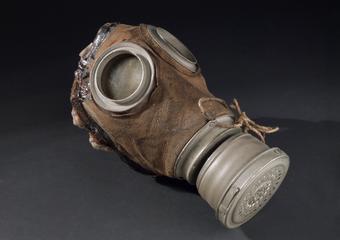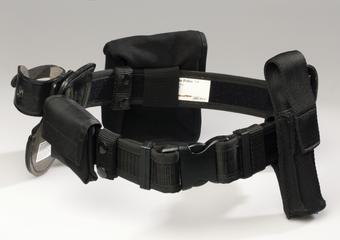
Mark I Ventura Continuous Positive Airway Pressure Flow Generator
Mark I Ventura CPAP (Continuous Positive Airway Pressure) Flow Generator collaboratively developed by UCL (University College London) Institute of Healthcare Engineering, University College London Hospitals NHS Foundation Trust (UCLH), and the Mercedes Amg High Performance Powertrains team, for use in the COVID-19 pandemic, made in the UK in March 2020, expiry date March 2022, device reference number GIN7043_02, serial number UCL00043.
During the first wave of the COVID-19, opinion was split on which was the best technique to help people with COVID-19 in hospital breathe. Information from Italy and China through Prof Meryn Singer recommended Continuous Positive Airway Pressure (CPAP). However, only 12 stand alone CPAP devices were available across UCLH Trust.
To help meet demand, a multidisciplinary team led by Professor Rebecca Shipley and Professor Tim Baker reverse engineered and improved an off patent device called Respironics WhisperFlow®. The UCL and UCLH team consisted of Singer, Prof David Lomas, Dr Tom Peach, Dr Tom Rushton, and Mr Peter Weston.
Alongside colleagues, Andy Cowell, Ben Hodgkinson and Pierre Godof, from Mercedes-AMG High Performance Powertrains, the team took fewer than 100 hours from their initial meeting producing their first prototype. Ten days after their first meeting, the Mark I Ventura had regulatory approval from MHRA (Medicines and Healthcare products Regulatory Agency). The UCL Ventura CPAP consists of three parts - the system flow generator, disposable circuit including tubing and an oxygen mask or hood and a reusable oxygen analyser.
CPAP (Continuous positive airway pressure) pushes a steady flow of air oxygen into a person’s nose and mouth either through an oxygen mask or oxygen hood. The device plugs directly into a hospital’s oxygen supply and helps regulate the flow of air and oxygen. 10,000 breathing aids have been manufactured for use in the United Kingdom and are now being used in over 130 NHS hospitals. The team also released their designs for zero cost so it could be freely used across the world.
The team had to work in a bubble due to COVID-19 restrictions, often moving into hotels to protect their loved ones and colleagues, spending weeks away from home. For their work, the team were awarded the Royal Academy of Engineering’s President’s Special Award for Pandemic Services in 2021. Rebecca Shipley was awarded an OBE and Tim Baker a MBE for their work.
Details
- Category:
- Public Health & Hygiene
- Object Number:
- 2022-188/1
- Materials:
- plastic (unidentified) and metal (unknown)
- Measurements:
-
overall: 160 mm x 143 mm x 59 mm,
- type:
- flow generator




